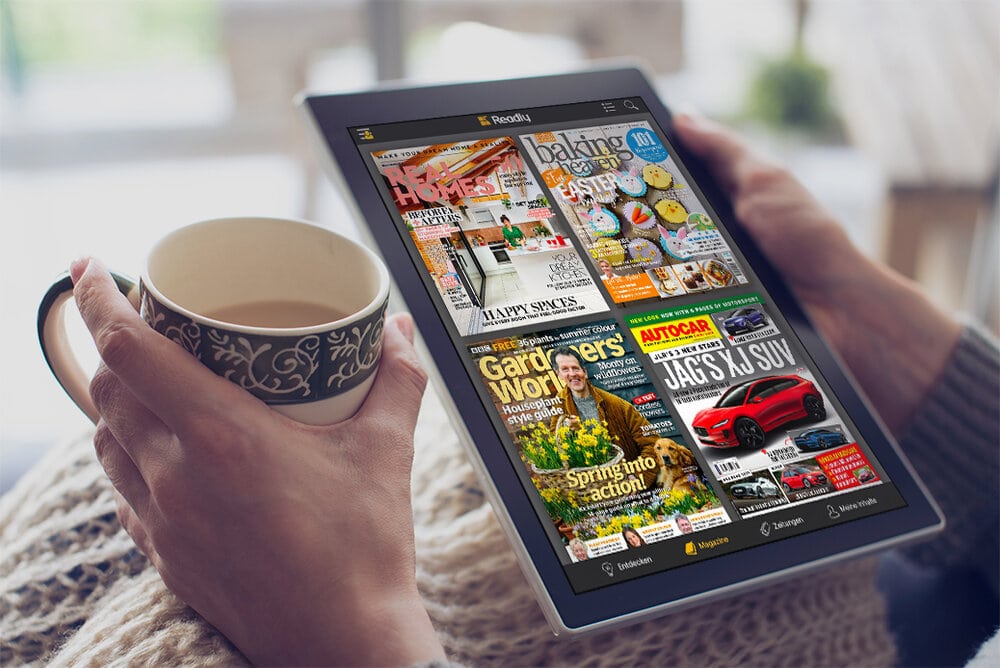By David Saunders | UPDATED: 11:28, 27 April 2020
Across Europe people are spending increasing amounts of time online as the coronavirus quarantine is extended.
Whilst many are using their devices to connect with friends and family, a recent YouGov survey commissioned by magazine app Readly, reveals that aimless scrolling online and boredom are having an adverse effect on the mental health for a number of people, with almost 8 in 10 Brits admitting to spending meaningless time online.
The YouGov survey reveals that social media has a negative impact on the mental health of almost 3 in 10 Brits – with this rising to 42% for 18-29 years olds. The most common adverse impacts being on self-esteem (47%), depression (40%), and problems sleeping (39%).
Dr Becky Spelman, Psychologist from Private Therapy Clinic, said: “It can be very tempting to endlessly scroll social media at the moment. Of course, it is important to stay connected, but constant exposure to a growing pandemic of conspiracy theories, “fake news” and misinformed advice is not at all useful.
For those who find that their time on social media is getting them down or causing anxiety, it is important to know when to step away. It is a good idea to set aside a specific time every day to check social media and then to put it away and do something different or explore other interests.”
The survey noted that the top ways in which Brits worked on their mental wellness was through getting enough sleep (65%), exercising (47%), reading (41%), following a healthy diet (41%), and meditation (15%).
Dr Spelman continued: “At times like this, it is very important for all of us to take care of both our physical and mental health. We all know we should be doing our best to eat healthily and to try to get a reasonable amount of exercise – but there are additional things we can be doing that are often less discussed.
Reading is an excellent way to foster good mental and emotional health – but it should be “active” reading, rather than passively absorbing information as you scroll through Facebook or other social media feeds.
Some people are using the quarantine as an opportunity to learn something – but reading escapist fiction or keeping up with celebrity gossip in a magazine can be just as fulfilling. Anything that engages the mind and the emotions is useful.”
With magazine reading at home helping to keep us informed as well as inspire and motivate us, the research shows that 58% of people report that reading helps them to relax, while 54% feel that it allows them to “step into another world”, and in that way to get away from all the stress and anxiety of the moment.
With restlessness and isolation increasing, many have been seeking inspiration, entertainment and information on platforms such as magazine app Readly – which has noted increasing activity over the past month. Readly app downloads have increased significantly with the onset of isolation in March, seeing downloads on all markets up 62 percent compared to March 2019 and 21 percent compared to February 2020.
Ranj Begley, UK Managing Director and Chief Content Officer at Readly said: “The high demand of the Readly app indicates a growing need for distraction and a place to relax as the coronavirus crisis is unfolding.
Many of our 5,000 magazine titles bring a much needed break from what we are witnessing around the world. The availability online means people can keep reading their favourite magazines on their phones, tablets and laptops despite self-isolation, as well as ensure they are accessing verified news from established sources.”
A number of reading categories have spiked on the Readly platform in the last month in Britain with the onset of social distancing.
Top 5 categories most increased during March according to Readly data:
● Crosswords and Puzzles: + 28%
● Mindfulness & Health: + 21%
● Home and Renovation: + 18%
● Gardening: + 14%
● Crafts: + 12%
Leading Psychologist Dr Becky Spelman gives her top tips on how to avoid endless social media scrolling, reduce anxiety, and help foster good mental and emotional health through reading during the coronavirus crisis.

Dr Becky Spelman
1. It is not realistic to suggest staying completely away from social media. Rather than trying to do so, consider giving yourself a particular time slot every day to check your social media outlet of choice. You may find that you start to feel anxious and worried; that’s OK. You don’t have to deny your feelings. However, make sure that you stick to your time slot, and then do something else.
2. Mindless scrolling through your phone is a learned habit, and the easiest way to unlearn it is to replace it with another one. This involves using a certain amount of discipline and taking up another behaviour instead. You can have several magazines or books “on the go” instead, so that you can always read something to suit your mood; an easy magazine article about fashion trends for a bit of escapism, and something more demanding for when you are feeling up to it.
3. Work some meditation or relaxation techniques into your day. This can be as simple as just sitting out of doors, or near an open window, for ten minutes every day while you let your mind rest and just experience the sounds, sights, and smells around you.
4. Explore your interests with magazines. This is a good time to delve into interests that you already love as well as explore the ones you’ve never had time to develop in the past. There is literally a magazine out there for every possible hobby or interest.
Magazine app Readly is the “spotify of magazines” with 5,000 titles – so if you’ve always loved knitting or body building – they will have options that you can discover and read instantly online on your phone or tablet.
5. Enjoy nature. If you have a garden or access to a park, you’re in luck! Most people find that exploring and enjoying nature is very rewarding. But even if you live in a small flat or apartment, you can watch the birds you see from your window or take care of a houseplant.
6. Your reading habits can dovetail with your other interests. If you love cooking, for example, you could read about nutrition in wellness magazines, or get lost in a book with a food-related theme, such as Chocolat by Joanne Harris.
7. Consider setting up a reading club with some of your friends and family. You can meet up online once a week to discuss what you are reading. If you all read the same magazine or article, you can talk about it together – or share tips on what you have been reading separately.
8. Plan for the future. We don’t know how long the current restrictions will last, but we do know that, at some point, they will come to an end. While this is not the right moment to start booking holidays or enrolling on special interest courses, you can certainly start to plan for the future in a general way. So, if you’ve always dreamt of being a photographer, for example, you can read up on it in a magazine and find out about the courses you can do, and the places you can visit, in the future.
For more information: www.readly.com
